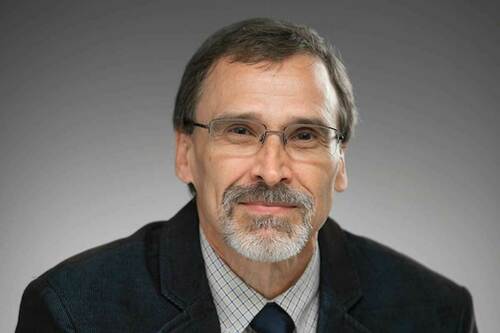
Alan Seabaugh, Frank M. Freimann Professor of Electrical Engineering, has been named the director of the University of Notre Dame’s Center for Nano Science and Technology (NDnano). As the new director, he will lead a center that supports more than 70 NDnano-affiliated faculty members from across nine departments in the colleges of engineering and science to grow the scale and stature of the University’s nanotechnology research efforts.
In discussing his new role, Seabaugh said, “Since its founding in 1999, NDnano has focused on connecting researchers from various backgrounds working towards common interests. I look forward to continuing to grow the center in line with these traditional efforts but also to support endeavors in new disciplines and explore other ways NDnano can make an impact.”
Previously, Seabaugh served as the director of the Midwest Institute for Nanoelectronics Discovery (MIND) and then the Center for Low Energy Systems Technology (LEAST). Seabaugh will be the NDnano’s second director, following founding director Wolfgang Porod, Frank M. Freimann Professor of Electrical and Computer Engineering.
“Since the inception of NDnano, the nanotechnology field has grown substantially at Notre Dame. We are indebted to Wolfgang Porod for his leadership since 2001,” said Robert J. Bernhard, vice president for research and professor of aerospace and mechanical engineering. “We are very fortunate to have someone with Alan’s leadership experience and international reputation to lead the continued growth of NDnano. Nanotechnology is increasingly an important element of new applications, and we expect that this center will support faculty from a broad spectrum of the University in their scholarly endeavors.”
In preparation for the position, Seabaugh has been meeting with each of the center’s members to learn about their ongoing projects and future nanoscale research aspirations.
“Through these meetings, I have gained a new appreciation of the tremendous potential we have at Notre Dame for multidisciplinary research. NDnano already has what is hardest to find — outstanding faculty and researchers, state-of-the-art facilities and no shortage of ideas about the future,” said Seabaugh.
Seabaugh’s own research interests are in nanoelectronic devices and circuits, particularly on energy efficient transistors for computing, ionic memory for learning systems and rectifiers for energy conversion. He is looking forward to advancing collaborations across NDnano, allowing Notre Dame researchers to address larger scientific questions and engineering grand challenges in environmental sustainability, security and health. Additionally, he would like to enhance the support and mentoring of early career faculty.
NDnano promotes collaborative research in science and engineering to address unsolved scientific and technical questions with an aim to promote the greater good. Advances in imaging and characterization, synthesis, growth and nanofabrication are enabling breakthroughs in all science and engineering disciplines. NDnano is where Notre Dame faculty, researchers and students meet to broaden understanding, discuss multidisciplinary research opportunities and shape future research directions.
To learn more about the center, its members and its research, please visit nano.nd.edu.
Contact:
Brandi R. Klingerman / Communications Specialist
Notre Dame Research / University of Notre Dame
bklinger@nd.edu / 574.631.8183
research.nd.edu / @UNDResearch
About Notre Dame Research:
The University of Notre Dame is a private research and teaching university inspired by its Catholic mission. Located in South Bend, Indiana, its researchers are advancing human understanding through research, scholarship, education, and creative endeavor in order to be a repository for knowledge and a powerful means for doing good in the world. For more information, please see research.nd.edu or @UNDResearch.
Originally published by at nano.nd.edu on January 16, 2018.
